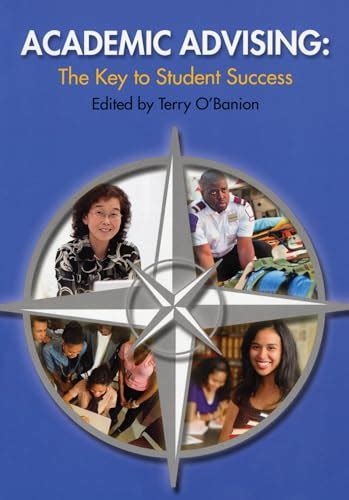With the increasing complexity of higher education, academic advisors play a crucial role in guiding students through their academic journey. To effectively fulfill this role, academic advisors must possess a comprehensive set of qualifications to support students’ academic, personal, and career development.

Master’s Degree in a Related Field
A master’s degree in college counseling, student affairs, or a related field is generally the minimum requirement for professional academic advisors. This advanced degree provides advisors with a strong foundation in theory and research-based practices relevant to advising.
Knowledge of Academic Programs and Resources
Academic advisors must have a thorough understanding of the academic programs and resources available to students. This includes knowledge of:
- Degree requirements
- Course selection
- Curriculum planning
- Academic policies
- Support services
- Career pathways
Advising Skills
Effective advising requires a combination of interpersonal and professional skills. Academic advisors should possess:
- Active listening and communication skills
- Empathy and understanding
- Cultural competence
- Goal-setting and decision-making support
- Problem-solving abilities
- Advocacy and referral skills
Professional Development and Certification
Continuous professional development is essential for academic advisors. Attending workshops, conferences, and pursuing certifications help advisors stay up-to-date on best practices, emerging trends, and ethical considerations in advising. Recognized certifications for academic advisors include:
- Certified Academic Advisor (NACADA)
- Advanced Certificate in College Advising (ACCA)
- Global Career Development Facilitator (GCDF)
Personal Attributes
Beyond formal qualifications, personal attributes are vital for successful academic advisors. These include:
- Dedication to student success
- Positive and enthusiastic attitude
- Patience and flexibility
- Collaborative and supportive nature
- Strong work ethic
Table 1: Comparison of Academic Advisor Qualifications
| Qualification | Requirement |
|---|---|
| Master’s Degree | Required |
| Academic Knowledge | Comprehensive |
| Advising Skills | Excellent |
| Professional Development | Continuous |
| Personal Attributes | Essential |
Strategies for Effective Advising
- Build strong relationships: Establish trust and rapport with students through open communication and a supportive environment.
- Personalize advising: Tailor advising sessions to meet each student’s individual needs and goals.
- Plan early: Engage with students early in their academic careers to help them establish a solid foundation.
- Utilize technology: Leverage technology to streamline communication, schedule appointments, and provide personalized guidance.
- Collaborate with other professionals: Seek support from faculty, counselors, and career services to provide comprehensive student support.
Benefits of Hiring Qualified Academic Advisors
- Improved Student Retention: Studies show that students who receive regular advising are more likely to persist and graduate.
- Increased Student Success: Academic advisors help students develop academic plans, make informed course choices, and navigate academic challenges.
- Enhanced Career Readiness: Advisors provide guidance and support for career planning, internship and job placement.
- Positive Student Experience: Well-qualified academic advisors create a supportive and encouraging environment, fostering student well-being and success.
Table 2: Pros and Cons of Hiring Qualified Academic Advisors
| Pros | Cons |
|---|---|
| Enhanced student success | Higher recruitment and retention costs |
| Improved student retention | Potential staff shortages |
| Positive student experience | Limited availability of qualified candidates |
Table 3: Essential Academic Advisor Skills
| Skill | Importance |
|---|---|
| Active Listening | Builds trust and understanding |
| Communication | Effectively conveys information and support |
| Problem-Solving | Addresses student challenges and finds solutions |
| Cultural Competence | Meets the needs of diverse student populations |
| Advocacy | Supports students and represents their interests |
Table 4: Impact of Qualified Academic Advisors on Student Outcomes
| Outcome | Impact |
|---|---|
| Student Persistence | Increased graduation rates |
| Academic Performance | Improved GPA and course completion |
| Career Readiness | Enhanced job prospects and career satisfaction |
| Student Satisfaction | Higher levels of engagement and well-being |
Frequently Asked Questions
Q1: What is the role of an academic advisor?
A1: Academic advisors support students by providing guidance on academic planning, course selection, career development, and personal well-being.
Q2: What qualifications does an academic advisor need?
A2: Typically, academic advisors require a master’s degree in college counseling or a related field and possess strong advising skills.
Q3: How can I find a qualified academic advisor?
A3: Contact your college or university’s advising center or explore professional organizations such as NACADA for listings of certified advisors.
Q4: What should I look for in an academic advisor?
A4: Seek an advisor who is knowledgeable, supportive, and genuinely interested in your success.
Q5: How often should I meet with my academic advisor?
A5: The frequency may vary depending on your needs, but it’s recommended to meet regularly (e.g., twice a semester) to stay on track and address any challenges.
Q6: What resources can academic advisors provide?
A6: Academic advisors can connect you with academic support services, career counseling, financial aid, and wellness programs.
Q7: How can I determine if an academic advisor is a good fit for me?
A7: Attend an initial meeting to discuss your needs and expectations and assess the advisor’s rapport and communication style.
Q8: What should I do if I’m not satisfied with my academic advisor?
A8: Communicate your concerns to the advisor or reach out to the advising center for support.
